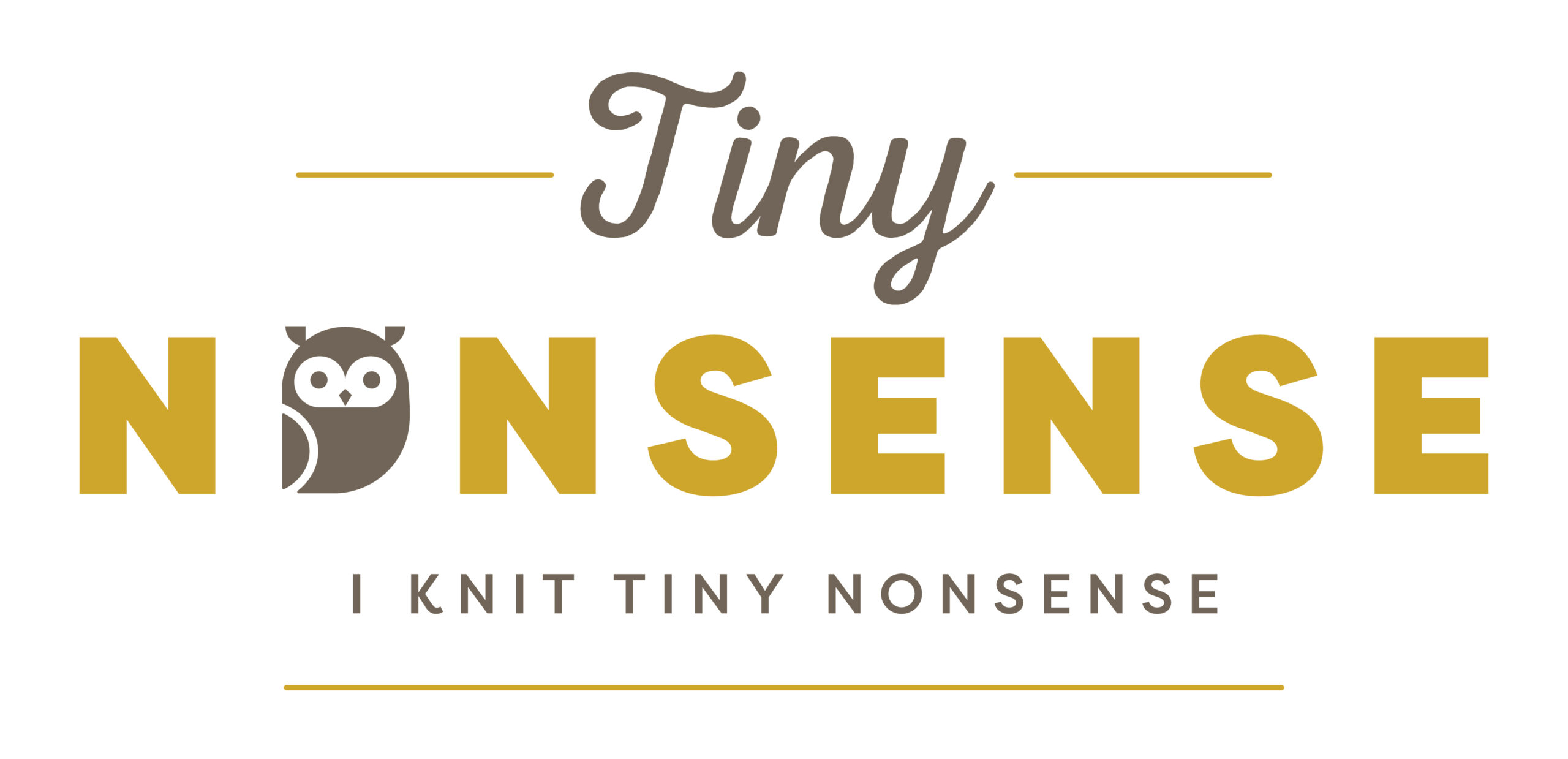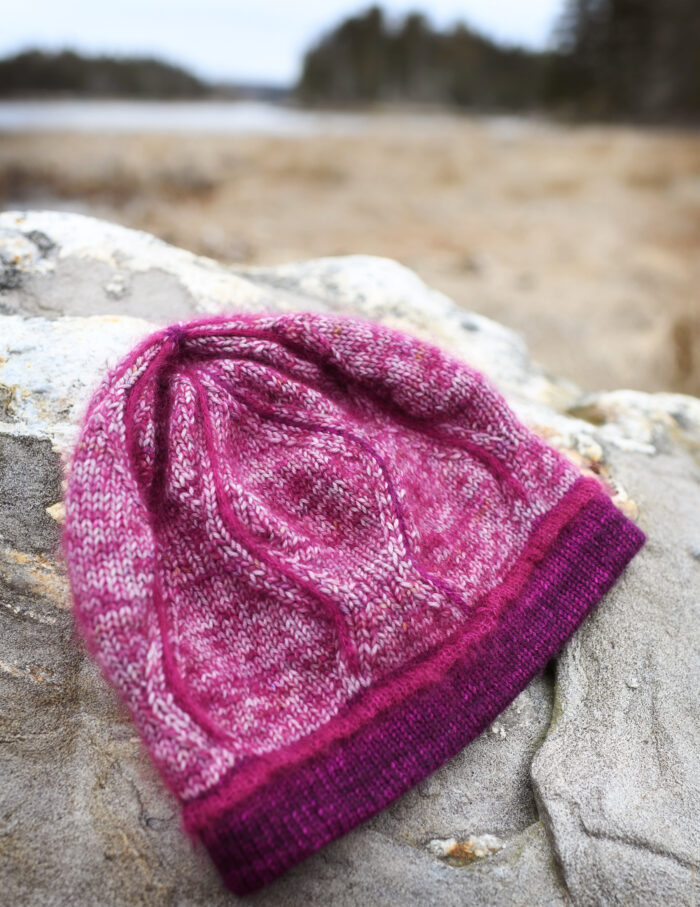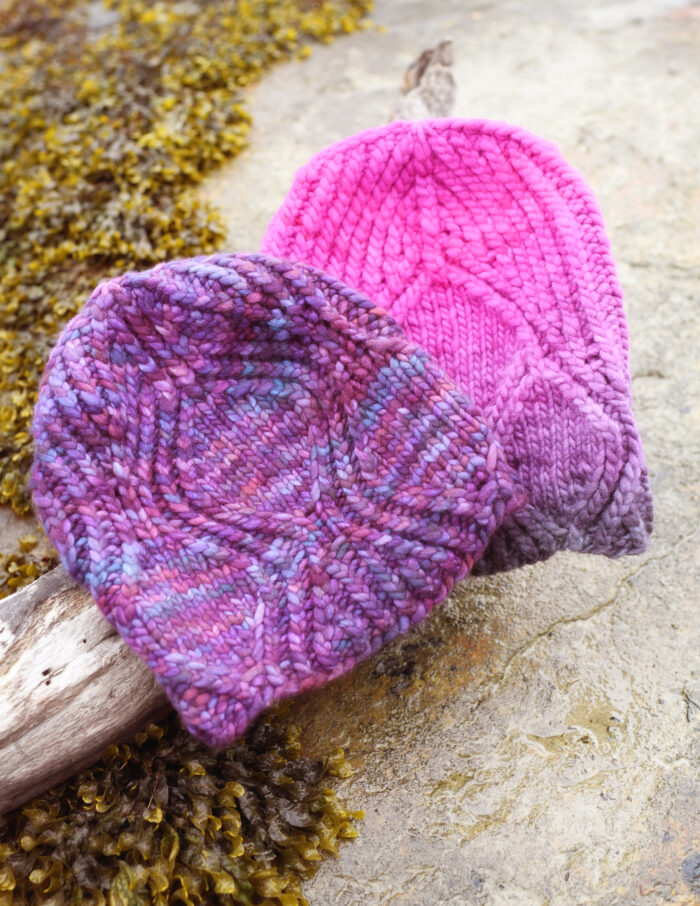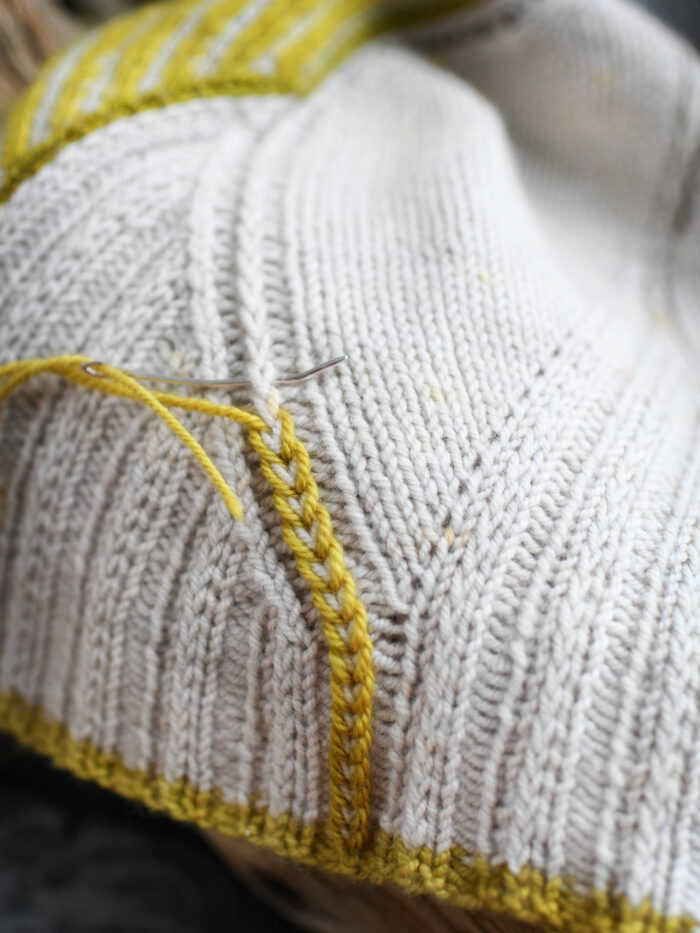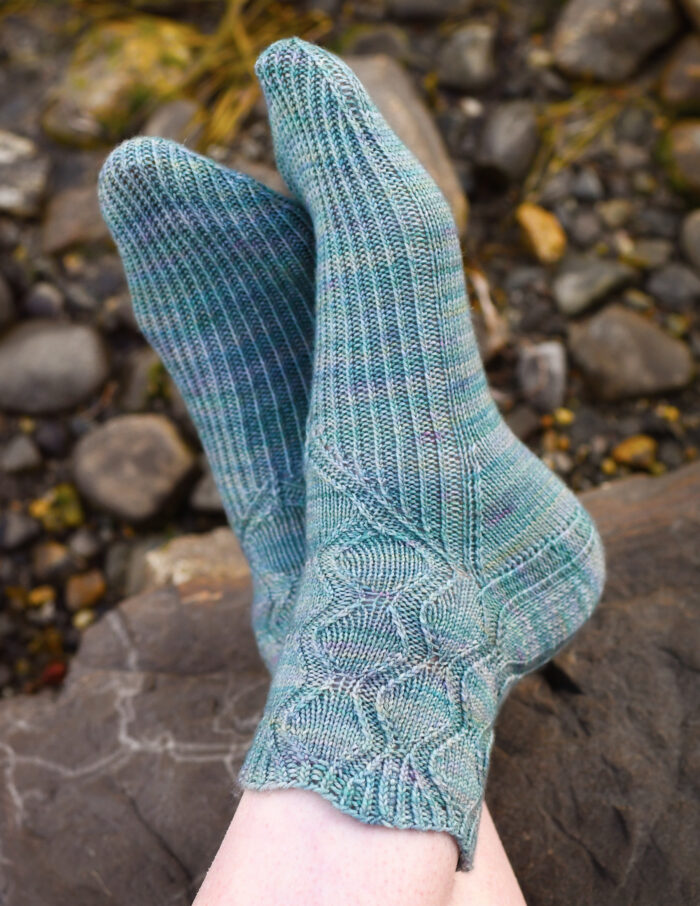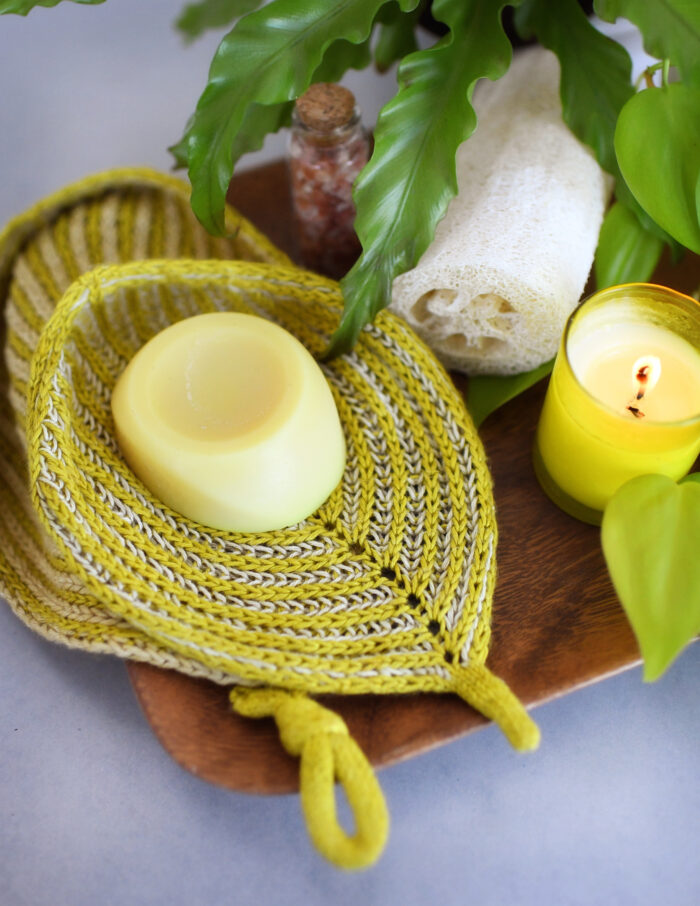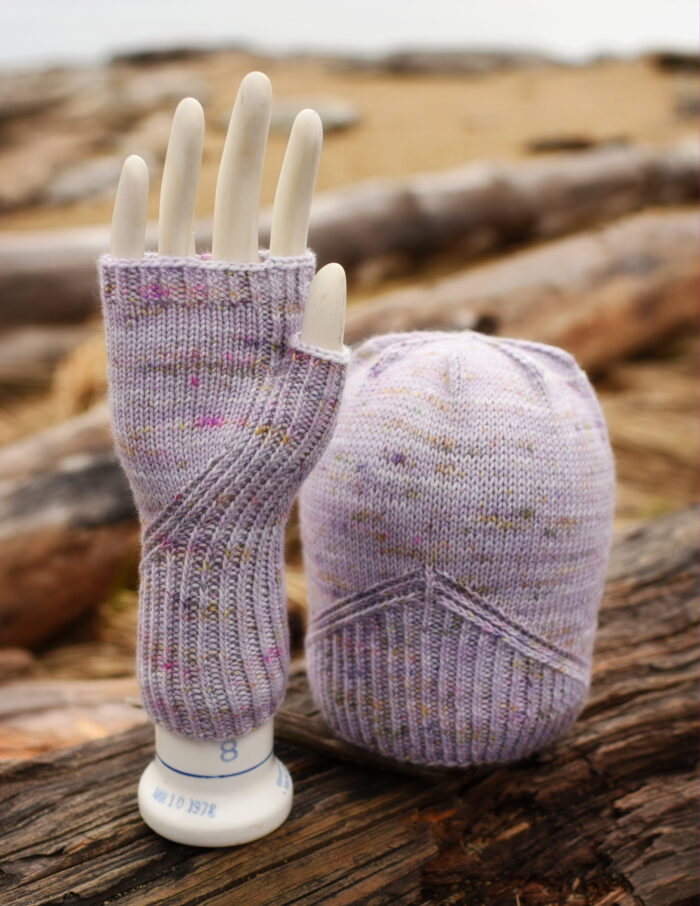Timelines, Tariffs, and Changing Truths (or why there likely won’t be a book next year)
I’ve written and published at least one book a year since 2012. I love books. I probably won’t do one next year. I want to tell you why.
To do that, I have to talk a little about how books are made, how they’re priced, and, oddly enough, tariffs. I never expected to be thinking about tariffs and trade wars when I started writing knitting patterns, but here we are.
Let’s start with timelines.
Books take me about a year to create. I started working on this fall’s book in December 2018. I have my team and my process in place, so I work fast (lots of people take more like two or three years to make a book).
I sourced yarn and wrote patterns in the early winter, got the pieces knit in the late winter and early spring, took photos and did layout and edits in late spring. By June, it was time to talk to the printer and get quotes for different sizes of print runs and for adding in fun stuff like electronic download codes and fancy papers (the things that make physical books so cool).
So, that’s the start of the timeline bit…now we need to start talking about tariffs.
Along with the quotes, the printer let me know that the president was talking about imposing a 25% tariffs on books printed in China. They said we’d know in a few weeks if they’d apply to my book.
I grumbled (if it costs me 25% more to get a book printed, I have to charge you more, and that’s no fun), said to let me know how it turned out, and settled in to finishing up the last of the book. At this point I’d been working on it for more than six months. I’d taken yarn support. I’d paid sample knitters and editors thousands of dollars. I was doing the book either way. As long as I knew what the tariff would be before we went to print, it would be fine. The only question was if I needed to raise the cover price of the book to handle my extra cost.
In early July, the printer came back and said the president had decided not to put tariffs on books. I did a little happy dance, kept the price where I originally wanted it (the price is built into the bar code on the back cover, so you have to set it before you send the files to the printer), and sent the files off. All I had to do now was wait for the book to show up in October.
So, that’s a bit more timeline, and a first brush with a tariff…but hold on, because things are about to get a lot more complicated when the truth changes.
In August, weeks after I’d sent the book to the printer, the president changed his mind. He put a 10% tariff on books. Now remember, I’d already set the price and couldn’t change it because it’s printed on the book. But now the books were going to cost me more to make. A few weeks later, he changed his mind again and raised the tariff to 15%. It may well change again before the book actually gets here.
So to recap, for years and years and years, there were no tariffs on books (because reading is cool and it’s good to keep book prices low). Then the president said he wanted to impose 25% tariffs. That was lousy, but I could have raised the price you pay for the book to cover it. Then he decided not to add a tariff to books, so I kept the price the same and sent the book to the printer. Then, after the book’s price was set, he imposed a 10% tariff. A few weeks later he changed that to a 15% tariff.
So now, the book will cost you the same (only because of bad timing, if I’d known, it would have cost you more), but it will cost me quite a bit more to get it printed.
Now don’t worry about me. I’ll be fine. I publish my books myself, and that means I get somewhere between 40-50% of the book’s cover price when I sell a book to a yarn shop or other outlet (the other 50-60% goes to the place selling it). But it does mean I have a substantial extra expense that I wasn’t expecting. So this book will make less money because the president changed his mind (over and over and over, and with far less notice than is usual).
That’s what’s happening with this book. What’s happening with future books is worse.
These new tariffs (and the incredibly erratic way they were implemented) almost certainly mean I won’t do a paper book next year (and probably not until there’s a new administration). It’s too hard to plan when I don’t know if my costs will change by 10% or 15% or 25% or more with no warning. In the unlikely event I do end up doing a paper book next year, it will cost you more to buy it because I will raise the price to cover these new tariffs and to cover this uncertainty. When I run out of stock of my current paper books, I’m less likely to print more. If I do print more, I’ll raise the cover price on the books so they’ll cost you more. Not because I’m a meany and want to raise prices…but because it’s going to cost me more to get them printed, and I can’t absorb that price all on my own.
I might just do an ebook next year. But ebooks are all the work of a paper book without all the fun of getting to hold something in your hands, so I probably won’t. I’ll probably just do individual patterns.
That means you’ll pay more for patterns (the price per pattern is far, far lower with books than with individual patterns, and individual patterns don’t show up in your local library the way books do). That means yarn shops and dyers don’t have a new book to sell (remember they make more than I do when they sell my books). That means I won’t be hiring as many sample knitters and editors (I tend to knit individual patterns myself, and books go through a more extensive editing process and get extra editors). And that’s just for me, the picture for the industry at large is worse still.
Because I do most everything myself, my profit margins have more wiggle room than those of a traditional publisher. Having my printing costs go up 15% will make this book less profitable, but still doable. From what I’ve heard from folks at traditional publishers, things are a lot tighter there. I can’t say for sure, but I can make some pretty darn educated guesses. These tariffs, and this level of uncertainty probably means book prices will go up. They probably mean designers will make less money working with publishers, so fewer people will be able to afford to write books. They probably mean publishers will be more careful about what they print, so we’ll see fewer new faces writing books. I don’t think any of those are good things.
Still with me? I know this is long and there hasn’t been even a bit of yarn to be seen. But if you are still with me, I want to answer two questions I think folks might ask.
First, what can you do? Well, on a purely selfish level, if you are thinking of buying the book I’m putting out this year, consider buying it directly from me during the preorder. You’ll save a few bucks, you’ll get the book early, and I’ll make more off the preorder books than on books sold through a third party, so it helps make up for the extra unexpected costs this book has to handle. Preordering also means you’re sure to get a copy, because when this one sells out, I almost certainly won’t do a second printing (at least not under this administration).
On a more general level, if you see someone saying that tariffs don’t matter or don’t affect them, remember what’s happened here. If this tariff has followed the usual schedule (so that I knew about it when I set the price for this book), this year’s book would have cost you more. If I print more books under this administration (not likely, but just barely possible), they will cost you more. If these tariffs don’t go away when this administration changes, and I do more books later, they will cost you more. Traditional publishers have to make these choices, too. There will almost certainly be fewer things to buy, and what there is will almost certainly cost you more. And it’s not limited to books. This will apply to a huge number of the things you buy.
Second, someone is absolutely bound to ask why I don’t just get the books printed in the US. The answer is money. I’ve looked into printing books in the US several times, and every time I’ve looked it’s been more than twice as expensive (a whole lot more than twice as expensive if I want to print download codes in the books). If I got the books printed here, the cover price would be more like thirty five to forty dollars (instead of twenty to twenty five). At that price, most knitters wouldn’t buy it, which means I can’t make it.
These tariffs will not make me print books in the US. All they’ll do is either make me not print books at all, or make me raise the cover price on the books I do print.
I know this was a wall of text, and I want to wrap it up with something pithy, but I’m at a bit of a loss.
The shortest possible takeaway is these tariffs will affect you. You won’t always hear about it (it’s a little weird to talk about a thing I won’t be making next year, and I suspect most places won’t talk about those decisions in public), but there will be lots of things that just don’t get made. And the things that do get made will cost you more.
The other thing I’d love you to remember is tariffs are not something that ‘China pays for.’ They’re something that the people making a product pay for and then take into account when they set the prices for those products. I, personally, will literally write a check to pay these tariffs. If I’d known they were coming, I’d have raised the cover price on this year’s book to pass that price on to you. This time the president changed his mind so many times and so quickly that I have to carry that cost myself, but that added cost will absolutely be built into future books. Businesses pay tariffs, and pass the cost on to you. China doesn’t pay a cent.
I’m just one tiny business, but I’m not the only one dealing with this. We’ll all see prices start to rise as a result of these tariffs. Keep it in mind come election day (and oh goodness please vote if you’re able).
P.S. If you’re a fan of this administration or this trade policy, that’s fine. You can totally feel that way, and it’s ok for us to disagree. But, if you’re about to leave a comment where you call me names or threaten to hurt or kill me or my family or my pets, that’s not fine. Seriously not fine. The fact that I have to even mention that it’s not fine is kind of gross, but experience tells me that I do.
This is your heads up that I’m moderating comments. Any that are abusive will be summarily deleted (though I may well find time to mock them…very likely publicly if they’re particularly objectionable). If you wouldn’t say it to my face if you were sitting in my home having a cup of coffee with me, don’t say it on my website.
P.P.S. You’ve all been so amazing! Seriously, I usually brace for a whole bunch of abuse when I say anything even slightly political/polarized. But you’ve all been awesome. Thank you. Totally made me feel better about people!
Mailing List
Want to hear when a new pattern comes out or something fun is going on? Sign up below!
Patreon
Want to support the content I create, get nifty bonus material for some of my favorite patterns, or get every new release delivered right to your inbox? Head over to patreon and sign up!
